Daily Vocabulary Words: Enhance Your Lexicon with Leading Newspapers & Publications
Welcome to the Daily Vocabulary section at Wordpandit!
Our mission is straightforward: to bring you essential vocabulary words featured in top newspapers and publications worldwide. By focusing on words you’ll encounter in renowned sources, we aim to help you enhance your vocabulary effectively and practically.
Our selection includes words from:
– The New York Times
– The Washington Post
– Scientific American
– BBC
– The Guardian
– Psychology Today
– Wall Street Journal
– The Economist
– The Hindu
– The Times of India
– The Economic Times
– Hindustan Times
– Live Mint
– The Indian Express
– And many more.
We are committed to your vocabulary development. Simply visit this section regularly and explore the daily posts. This is your go-to repository for commonly used words, providing significant practical benefits by familiarizing you with vocabulary from the leading publications listed above.
Make it a habit to visit our website daily and expand your lexicon with words from top newspapers and publications. (edited)
WORD-1: QUADRUPLING
CONTEXT: All, India’s per capita income today is less than $3000, quadrupling it to $12,000 by 2047 is at once inspiring and intimidating.
SOURCE: Indian Express
EXPLANATORY PARAGRAPH: Imagine you have one toy, and then you get three more just like it. Now you have four toys! Quadrupling is when you make something four times bigger or four times as many.
MEANING: Making something four times bigger or increasing it by four times (verb).
PRONUNCIATION: kwah-DROO-plihng
SYNONYMS: Multiplying by four, increasing fourfold, quadruple, four times, fourfold
USAGE EXAMPLES:
1. The company is quadrupling its production this year.
2. Quadrupling the recipe will make enough cookies for everyone.
3. Their investment ended up quadrupling in value.
4. The city’s population is quadrupling due to new job opportunities.
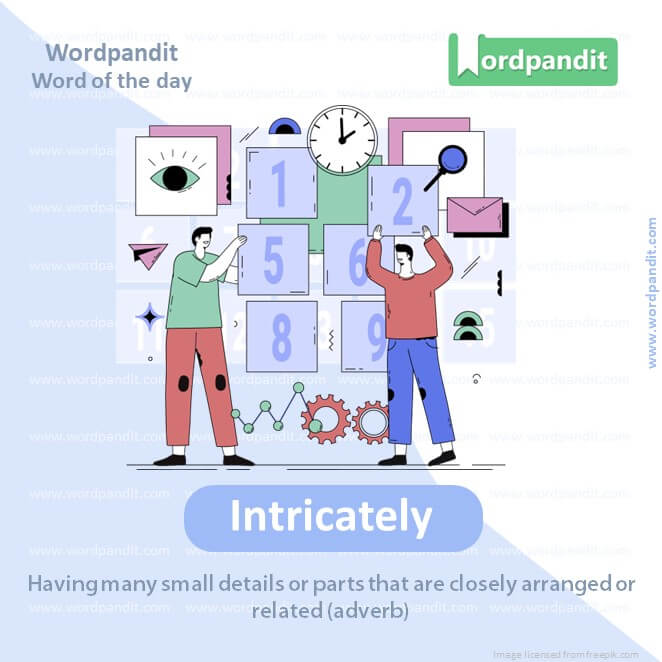
WORD-2: INTRICATELY
CONTEXT: As India’s domestic and external imperatives become more intricately intertwined today, the Congress must rise to the occasion.
SOURCE: Indian Express
EXPLANATORY PARAGRAPH: Imagine a very detailed drawing with lots of tiny patterns and shapes all fitting together perfectly. When something is done in a very detailed and complicated way, it’s done intricately.
MEANING: Having many small details or parts that are closely arranged or related (adverb)
PRONUNCIATION: IN-trih-kit-lee
SYNONYMS: Elaborately, detailedly, complicatedly, complexly
USAGE EXAMPLES:
1. The artist intricately designed the mosaic with tiny tiles.
2. The story was intricately woven with multiple plot twists.
3. She intricately braided her hair with ribbons.
4. The machine was intricately assembled with many small parts.
WORD-3: INCLINATION
CONTEXT: While all of them ably served the cause of Pakistan, Shahryar Khan tried to build bridges between India-Pakistan. The other two did not show any such inclination.
SOURCE: Indian Express
EXPLANATORY PARAGRAPH: Imagine you always like to pick the blue crayon over the red one. That means you have a preference, or an inclination, for the blue crayon. Inclination is when you naturally feel like doing or choosing something.
MEANING: A natural tendency or preference to do something (noun).
PRONUNCIATION: in-kluh-NAY-shun
SYNONYMS: Tendency, preference, leaning, propensity, disposition, proclivity
USAGE EXAMPLES:
1. She has an inclination to help others.
2. His inclination for music led him to learn the piano.
3. They showed an inclination towards creative activities.
4. I have an inclination to wake up early in the morning.
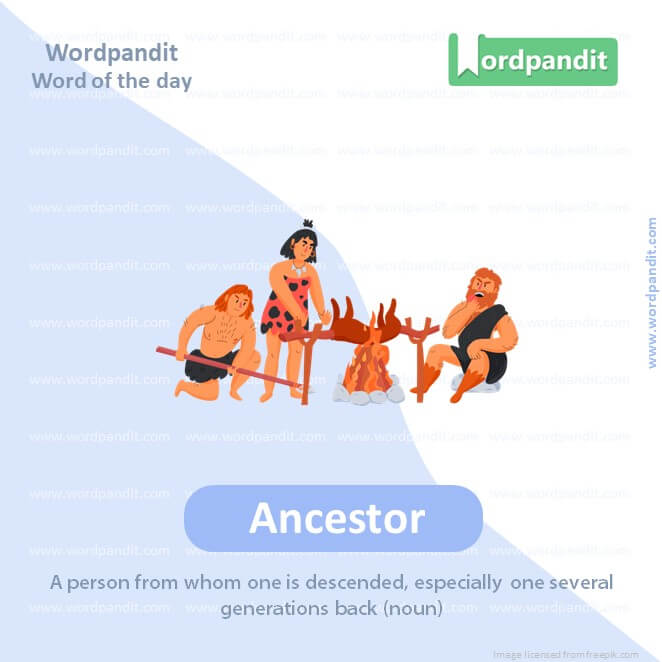
WORD-4: ANCESTOR
CONTEXT: His ancestor was a brother of the veteran Congress leader Acharya J B Kripalani who had converted to Islam.
SOURCE: Indian Express
EXPLANATORY PARAGRAPH: Imagine your grandparents and great-grandparents. They are part of your family from a long time ago. An ancestor is someone from your family who lived a long time before you were born.
MEANING: A person from your family who lived a long time ago (noun).
PRONUNCIATION: AN-ses-ter
SYNONYMS: Forebear, forefather, predecessor, progenitor, antecedent, foremother
USAGE EXAMPLES:
1. My ancestors came to this country many years ago.
2. She learned about her ancestors through family stories.
3. Our ancestors built this old house.
4. He discovered that his ancestors were artists.
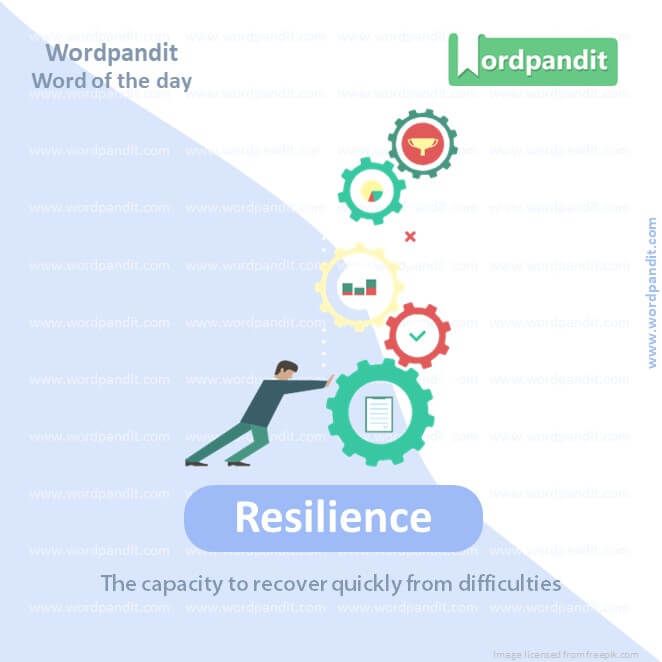
WORD-5: RESILIENCE
CONTEXT: Did he, for instance, have an instinctive understanding of this country’s resilience and counsel his superiors that the path Pakistan had embarked on would prove counterproductive?
SOURCE: Indian Express
EXPLANATORY PARAGRAPH: Imagine a rubber ball that you can squish, but it always bounces back to its original shape. Resilience is the ability to recover quickly from difficulties or changes, just like that rubber ball.
MEANING: The capacity to recover quickly from difficulties
PRONUNCIATION: reh-ZIL-yuhns
SYNONYMS: Toughness, durability, adaptability, flexibility, strength, endurance
USAGE EXAMPLES:
1. The community showed great resilience after the storm.
2. Children often have a lot of resilience.
3. Her resilience helped her overcome many challenges.
4. The team’s resilience led them to win the game.
WORD-6: DAZZLING
CONTEXT: Krishna’s concerts are a profound experience: Simultaneously, a dazzling demonstration of technical virtuosity and of the human voice’s sublime ability to touch the deepest emotional chords.
SOURCE: Indian Express
EXPLANATORY PARAGRAPH: Imagine a sparkly star that is so bright it makes you say “Wow!” Dazzling means something is so bright or amazing that it catches your attention right away.
MEANING: Extremely bright or impressive (adjective).
PRONUNCIATION: DAZ-ling
SYNONYMS: Stunning, brilliant, sparkling, shining, impressive, radiant
USAGE EXAMPLES:
1. The fireworks were dazzling in the night sky.
2. She wore a dazzling dress to the party.
3. The performance was absolutely dazzling.
4. His smile was dazzling and made everyone feel happy.
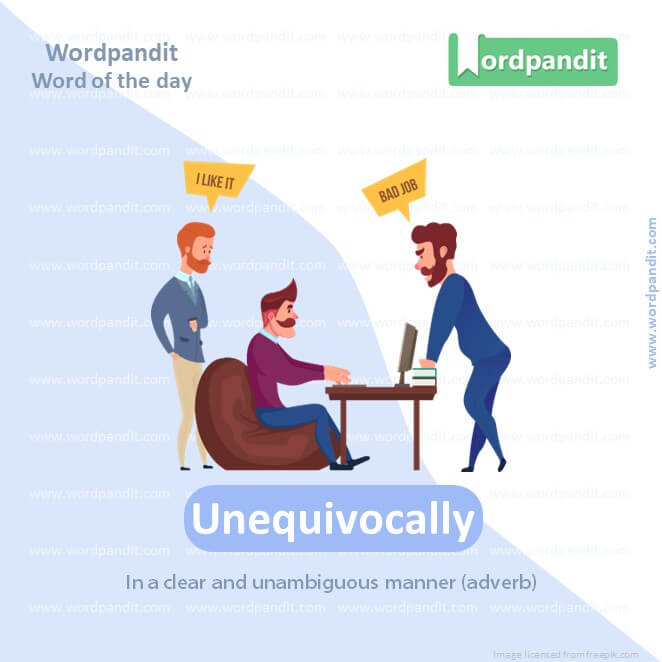
WORD-7: UNEQUIVOCALLY
CONTEXT: What this year’s award unequivocally declares is that it doesn’t matter what Krishna’s political and social views are, he is inarguably a brilliant exemplar of Carnatic music as a singer, innovator, and inclusive performer.
SOURCE: Indian Express
EXPLANATORY PARAGRAPH: Imagine saying “Yes!” in a very strong and clear way without any doubt. Unequivocally means you are very sure and clear about something.
MEANING: In a clear and unambiguous manner (adverb)
PRONUNCIATION: un-ee-KWIH-vuh-klee
SYNONYMS: Clearly, undoubtedly, unquestionably, definitely, absolutely, certainly
USAGE EXAMPLES:
1. She unequivocally stated her support for the project.
2. The results were unequivocally positive.
3. He unequivocally denied the accusations.
4. The evidence was unequivocally in their favor.
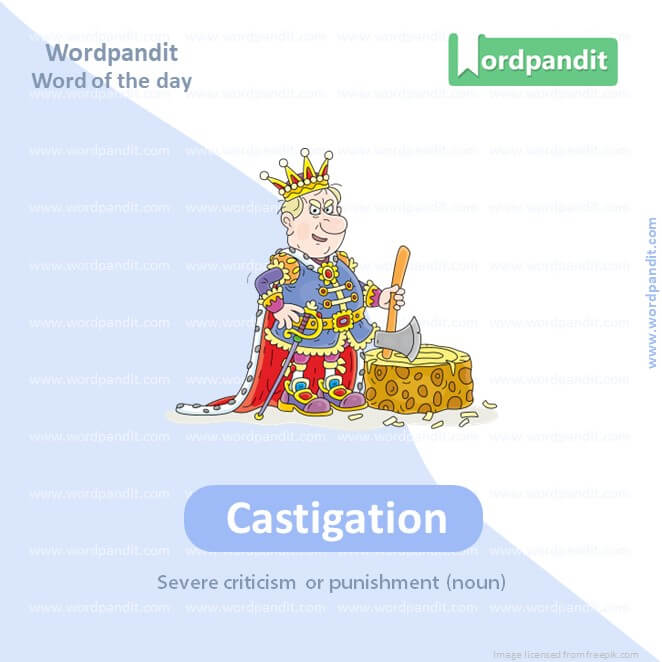
WORD-8: CASTIGATION
CONTEXT: The anger against Krishna ostensibly stems from his “woke” anti-Brahminism (despite himself being a Brahmin) and endorsement of the influential social reformer and founder of the Dravidian movement, E V Ramasamy “Periyar”, his castigation of the Carnatic realm for its Brahmin-centric elitism, and his supposed denigration of revered Carnatic icons — the composer Thyagaraja and the vocalist M S Subbulakshmi.
SOURCE: Indian Express
EXPLANATORY PARAGRAPH: Imagine getting in trouble and someone telling you very seriously what you did wrong. Castigation is when someone criticizes or scolds you very harshly.
MEANING: Severe criticism or punishment (noun)
PRONUNCIATION: kas-tih-GAY-shun
SYNONYMS: Reprimand, rebuke, chastisement, censure, criticism, reproach
USAGE EXAMPLES:
1. The teacher’s castigation made the student realize his mistake.
2. She faced castigation for her actions.
3. The castigation from the boss was harsh but necessary.
4. Public castigation can be very embarrassing.
WORD-9: ESPOUSING
CONTEXT: The revered Tamil poet, Subramania Bharathi, composed the still-popular Carnatic songs espousing caste and gender equality, and his 19th century namesake Gopalakrishna Bharathi wrote an entire Carnatic opera celebrating Nandanar, the Dalit Saiva Nayanar bard-saint, excerpts from which figure prominently in concerts even today.
SOURCE: Indian Express
EXPLANATORY PARAGRAPH: Imagine telling everyone about your favorite game and saying how much you love it. Espousing means to support or believe strongly in an idea or cause and tell others about it.
MEANING: Supporting or advocating for a cause or idea (verb).
PRONUNCIATION: eh-SPOW-zing
SYNONYMS: Advocating, supporting, promoting, endorsing, championing, backing
USAGE EXAMPLES:
1. He is known for espousing environmental causes.
2. The politician was espousing new education reforms.
3. She began espousing the benefits of a healthy diet.
4. The group is espousing equal rights for all.
WORD-10: RENDITION
CONTEXT: No one who has heard his moving rendition of the 15th century composer Vyasatirtha’s “Krishna Nee Begane Baro” can seriously doubt that he is anything but immersed in bhakti.
SOURCE: Indian Express
EXPLANATORY PARAGRAPH: Imagine singing a song just like your favorite singer, but with your own style. Rendition is how you perform or interpret something, like a song or a story.
MEANING: A performance or interpretation of something, especially a song or piece of music (noun).
PRONUNCIATION: ren-DIH-shun
SYNONYMS: Interpretation, performance, version, presentation, execution, rendering
USAGE EXAMPLES:
1. Her rendition of the national anthem was beautiful.
2. The actor’s rendition of the character was unique.
3. The band’s rendition of the classic song was well-received.
4. The dance rendition added a new twist to the traditional routine.
Vocabulary Daily Use
In the fascinating world of language learning, we often concentrate on taking giant leaps, but the real magic lies in the small steps of ‘vocabulary daily use’. These frequently used words and phrases form the backbone of practical communication and understanding. Therefore, mastering ‘vocabulary daily use’ is a crucial element in achieving language fluency.
To effectively learn ‘vocabulary daily use’, one needs to venture beyond the traditional textbook resources. The real essence of these words unveils itself in everyday exposure and interactions. Engaging with a variety of material like novels, magazines, newspapers, podcasts, films and digital content deepens the understanding of ‘vocabulary daily use’. Immersion in these contexts yield natural, everyday language that bridges the gap between the classroom and the real world.
The journey of mastering ‘vocabulary daily use’ necessitates the integration of innovative memory techniques. Flashcards and the Leitner System aid in embedding these words into your long-term memory by promoting active recall. Additionally, the use of mnemonic devices, which allow you to associate ‘vocabulary daily use’ with personal and familiar narratives, can enhance your ability to remember and recall these words.
Moreover, it’s important to remember that ‘vocabulary daily use’ isn’t just about comprehension- it’s about practice and active usage. Incorporate these words in your day-to-day communication and social interactions. This not only solidifies your understanding but also accelerates learning and internalization of ‘vocabulary daily use’.
In a nutshell, mastering ‘vocabulary daily use’ is a continual process that demands exposure, creative learning strategies and assertive practice. The commingling of these tactics brews the perfect formula that allows learners to seamlessly integrate ‘vocabulary daily use’ into their linguistic repertoire. And with that, they can navigate the nuances of language with confidence and ease.













